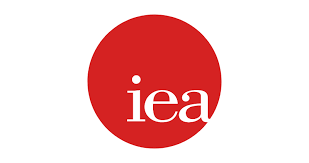 The Shadow Monetary Policy Committee (SMPC), in its second quarterly hybrid meeting of 2025, voted to reduce the Bank rate from 4.5% to 4%.
The Shadow Monetary Policy Committee (SMPC), in its second quarterly hybrid meeting of 2025, voted to reduce the Bank rate from 4.5% to 4%.
Eight members voted in favour of a cut and one for a hold. The member who voted for a hold expressed concerns about the potential risks of cutting rates with money supply growth nearing its desired annual rate. His stance was also influenced by the prevailing uncertainty, as he wanted the option to cut rates in the future.
The majority, however, thought that rates should be cut at today’s Monetary Policy Committee Meeting (MPC) meeting because tariffs implied a tightening of economic conditions amidst less fiscal flexibility in the UK, and therefore, monetary policy should be used to help buttress consumer and business activity. Six voted for a cut of ½% and two for a cut of ¼%, resulting in a majority vote for a half per cent cut.
Moreover, seven members voted to end or pause QT (quantitative tightening), with one voting to continue and one expressing no preference. Furthermore, the majority thought that given the many uncertainties that could negatively impact the economic outlook, the policy bias should be geared towards easing.
In summary, the SMPC is concerned about the effect of US tariffs, with broad agreement that they will lower economic growth and raise inflation—though the latter is mainly in the US. They are optimistic that most countries will not retaliate and erect barriers against each other’s trade. Hence, they will avoid a 1930s-style economic doom loop in which each country erects trade barriers against each other and creates the conditions for a depression.
Tariffs prevent the market economy from operating optimally by reducing specialisation and economies of scale. Thus, they harm economic incentives and the ‘invisible hand’ of the markets, gumming up how free markets operate.
The SMPC is a group of economists who have gathered quarterly at the IEA since July 1997. It was the first such group in Britain, and it gathers regularly to debate the issues involved, which distinguishes the SMPC from similar exercises carried out elsewhere. To ensure that nine votes are cast each month, it carries a pool of ‘spare’ members. This can lead to changes in the aggregate vote, depending on who contributed to a particular poll. As a result, the nine independent and named analyses should be regarded as more significant than the exact overall vote.



